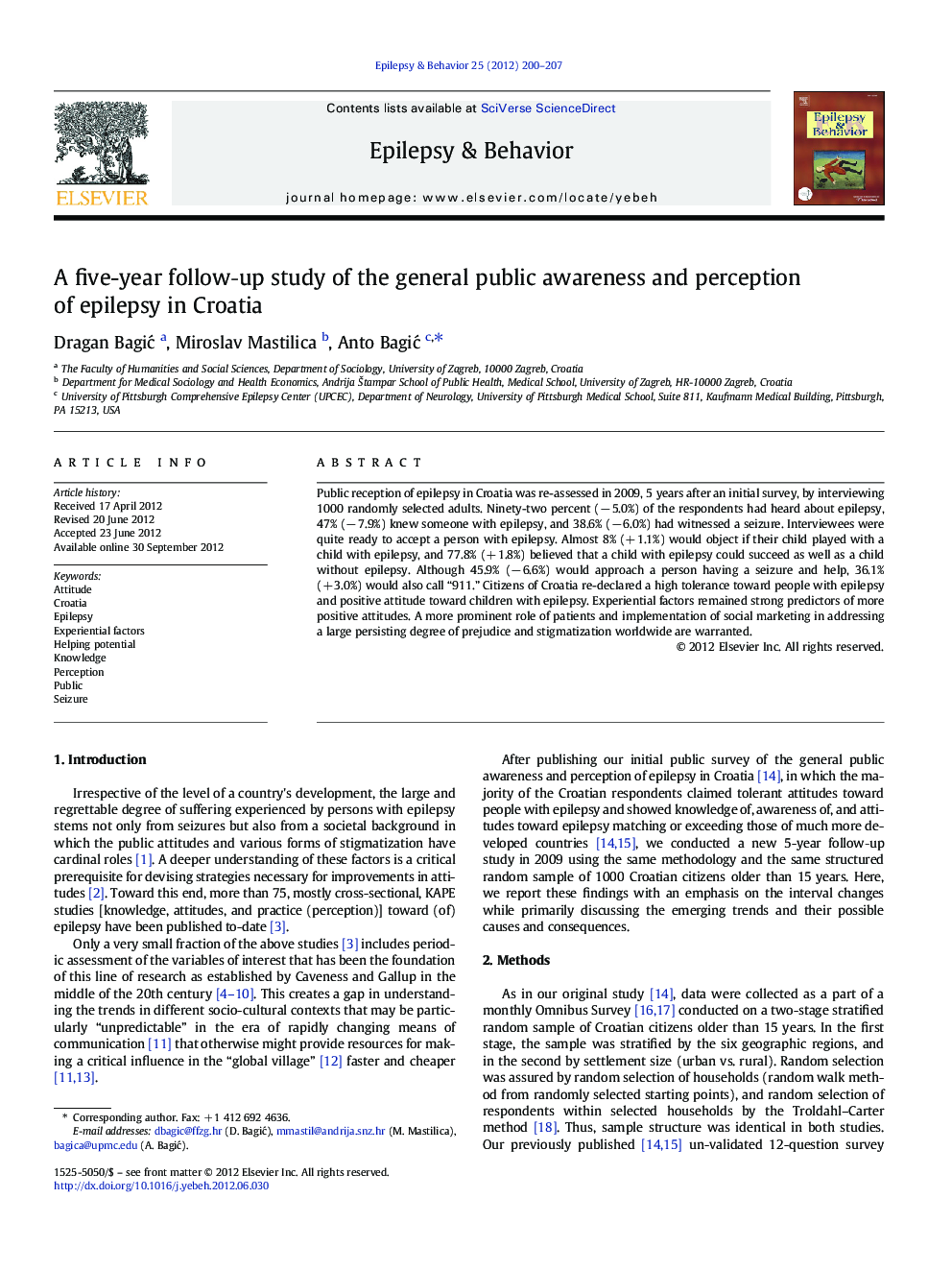| Article ID | Journal | Published Year | Pages | File Type |
|---|---|---|---|---|
| 6013687 | Epilepsy & Behavior | 2012 | 8 Pages |
Public reception of epilepsy in Croatia was re-assessed in 2009, 5 years after an initial survey, by interviewing 1000 randomly selected adults. Ninety-two percent (â 5.0%) of the respondents had heard about epilepsy, 47% (â 7.9%) knew someone with epilepsy, and 38.6% (â 6.0%) had witnessed a seizure. Interviewees were quite ready to accept a person with epilepsy. Almost 8% (+ 1.1%) would object if their child played with a child with epilepsy, and 77.8% (+ 1.8%) believed that a child with epilepsy could succeed as well as a child without epilepsy. Although 45.9% (â 6.6%) would approach a person having a seizure and help, 36.1% (+ 3.0%) would also call “911.” Citizens of Croatia re-declared a high tolerance toward people with epilepsy and positive attitude toward children with epilepsy. Experiential factors remained strong predictors of more positive attitudes. A more prominent role of patients and implementation of social marketing in addressing a large persisting degree of prejudice and stigmatization worldwide are warranted.
⺠There was no significant change in the general understanding of epilepsy. ⺠Citizens of Croatia remained very tolerant toward people with epilepsy. ⺠Positive attitudes toward children (“playing” and “success”) remain stable. ⺠Experiential factors predict more positive attitudes toward people with epilepsy. ⺠Involving patients and applying social marketing methods may be very beneficial.
